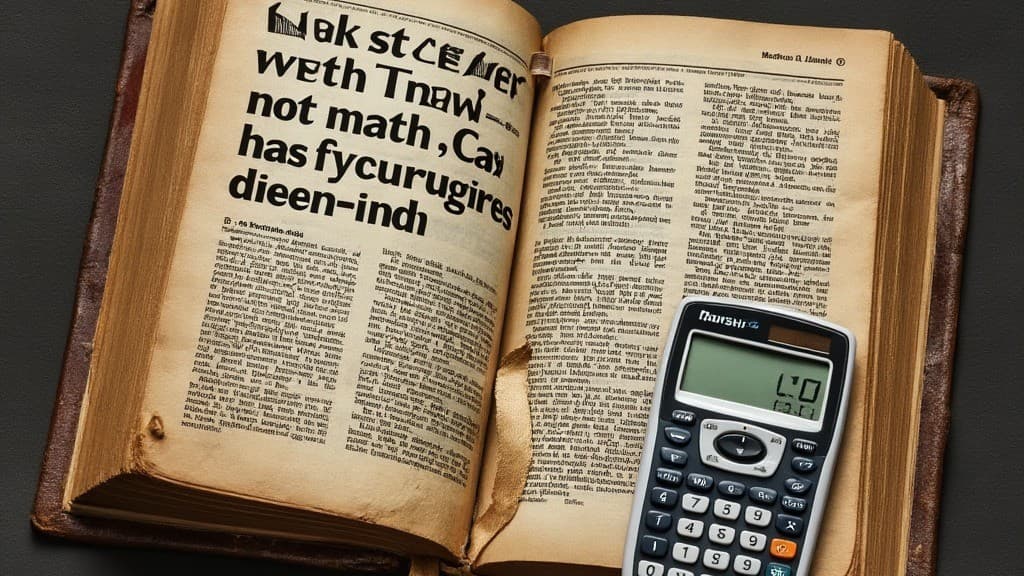Why studying myth, not math can make you wiser


"The myth is the public dream and the dream is the private myth." — Joseph Campbell
Picture a typical classroom.
What do you see?
Most likely children who are completely absorbed in solving math puzzles, experimenting with verb tenses, or making a concerted effort to recall significant historical dates.
But what if we’re missing out on something vital?
Myths are much more than just fairy tales; they are those age-old narratives about gods and heroes. These are stories that are rife with wisdom and aid in our decision-making and understanding of life.
I'm talking about myths.
Don't get me wrong – math and science are important.
But there is a compelling argument for including mythology in our educational system.
Is it just me, or does the constant onslaught of information in my social media feed occasionally feel overwhelming?
You too, right?
We are drowning in stories, and it's getting harder to tell which ones matter. This is where myths come in handy.
Myths are fundamentally maps that help people discover meaning and purpose. They convey profound ideas about human nature, the conflict between good and evil, the quest for identity, and the cycle of life, death, and rebirth through symbolism, archetypes, and narrative.
A universal mythic structure made popular by Joseph Campbell, the hero's journey lays out a series of transformational stages, including the call to adventure, the path of trials, the abyss, the revelation, and the return.
This pattern appears not only in old stories but also in our own lives when we overcome obstacles, give up things we value, fight inner and outer demons, and grow into more enlightened versions of ourselves.
Myths are similar to the original Netflix series about humanity.
They've survived for thousands of years because they tap into something fundamentally human. Consider the story of Icarus, who flew too close to the sun and suffered a severe fall.
On the surface, it's a straightforward "don't get too cocky" story. But if you dig deeper, you'll discover it's full of insights into ambition, parent-child relationships, and the difficult balance between reaching for the stars and staying grounded.
These are not just ancient Greek problems.
They're the same issues that keep modern CEOs up at night and cause drama in every family WhatsApp group.
Through becoming acquainted with these timeless stories, we develop a form of "story radar." We get better at recognizing patterns in the narratives that swirl around us.
This skill is pure gold in a world where everyone, from politicians to advertisers, is attempting to sell us their version of reality.
But here's where it gets really interesting. In the business world, people talk about "alpha" – that extra edge that helps you outperform the market.
Well, I'd argue that studying myths can give you "information alpha." It's like a superpower for processing information and making decisions.
How?
Myths are essentially a crash course in human nature.
They assist you in recognizing behavioural and social patterns. They boost your emotional intelligence, allowing you to better understand what makes people tick.
In a world where telling a good story can make or break a brand, knowing how to craft and understand narratives is a valuable skill.
Plus, myths give us a shared language. In a global business meeting, dropping a reference to Hercules' labors or the Trojan Horse can bridge cultural gaps faster than you can say "synergy."
Now, let's talk about the elephant in the room: AI.
As artificial intelligence gets smarter, it's going to get harder to tell what's real and what's machine-generated. This is where having a gut feeling for "true stories" becomes crucial.
It's not about fact-checking every detail. It's about developing an instinct for narratives that ring true to the human experience. Myths, having stood the test of time, are like a tuning fork for this kind of truth. They help us build a sort of "BS detector" for stories that don't quite hit the mark.
So, here's the bottom line: in our rush to crunch numbers and build algorithms, we might be overlooking a powerful tool that's been right under our noses. Myths offer us a unique window into the human condition, equipping us with tools to navigate our complex, story-saturated world.
Don't get me wrong – I'm not suggesting we swap calculus for "Intro to Greek Gods 101." But maybe, by sprinkling a bit of myth into our diet of facts and figures, we might just find ourselves not only smarter but wiser.
The study of myth is not an escape from reality but a way to engage it more fully. With one foot in the imaginal realm, we are better equipped to meet the challenges of the real world head-on.
After all, in a world where anyone can Google the answer to a math problem, understanding the stories that make us human might just be the ultimate competitive edge.

Authored by Edison Ade
I show founders how to use AI and better systems to grow faster, save time, and build something that lasts.
Full StoryMaster the System.
Weekly insights on AI strategy, growth frameworks, and business architecture.